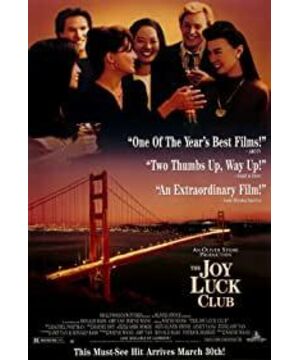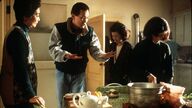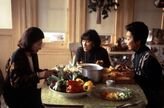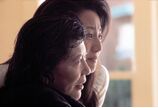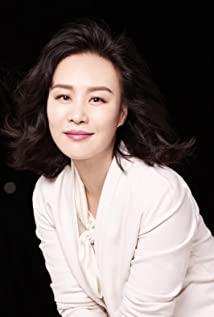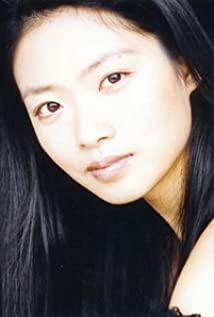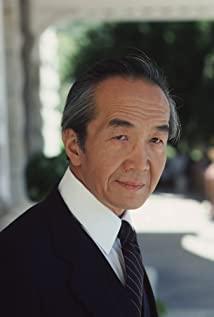A series of incidents triggered by the racial movement in the past few days made it rare for me to talk about children's education with others. This afternoon, I revisited the classic film about the parent-child relationship of Chinese American families - "The Joy Luck Club".
I read it for the first time when I was in English class in college, and now I live overseas for many years and then watch it again.
After so many years, it is still moving to relive these stories. China's most popular and most accepted works of art in the Western world are often created by women, with a delicate and feminine style, telling traditional Chinese women's stories, such as "Hong", "The Joy Luck Club" and "The Big Red Lantern Hanging High" "Wait. Because this is more in line with their inherent impression of oriental culture, just like the impression left by the Song Dynasty to future generations. On the whole, it is to highlight one word - "miserable", and try its best to describe the various oppressions suffered by Chinese women and their extraordinary forbearance and fortitude.
Whether it is Mo Yan or Zhang Yimou, any works that can be recognized internationally are all works about the suffering of the nation.
It is called "handing the knife to the west" in popular words.
This is really an interesting phenomenon.
In fact, from the current point of view, this film is also full of racist prejudice-a classic combination of white men and Asian women, and Asian men have a very low sense of presence. But people's habitual cognition is like this, and there is no need to force change.
One of the lines in the film that touched me the most: describing the generation of Chinese women as "like going up the stairs, step by step, up or down, but always on the same road". In fact, this kind of tenacity and forbearance cannot be regarded as a disadvantage. On the contrary, it is the unique charm of Chinese women that distinguishes them from women of other ethnic groups.
PS: The previous actresses still stand the test of time and are more attractive and recognizable.
Compared with the Chinese starring actors who have been trained in Hollywood, several domestically trained actresses (Xi Meijuan, Yu Feihong, Wu Junmei) who play supporting roles in the film have not many scenes, but their acting skills are not inferior at all. People are proud and happy!
View more about The Joy Luck Club reviews


